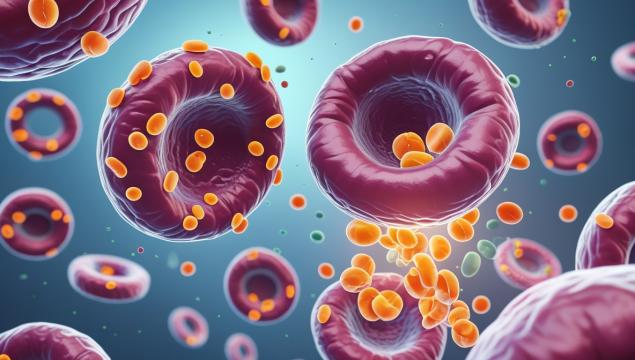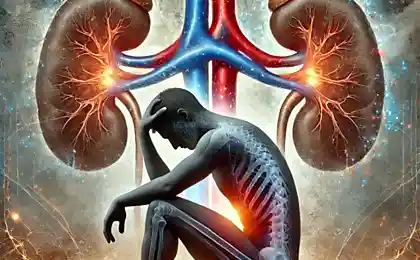175
9 Reasons Why You Always Want to Sleep

Do you feel like your eyes are stuck in the middle of an important meeting? Or when you struggle with the overwhelming urge to take a nap while driving? Constant drowsiness is not just an inconvenience, but a signal from the body that something is going wrong.
Studies show that about 40% of adults suffer from excessive daytime sleepiness at least once a month, and 20% experience the condition regularly. Understanding the causes is the first step to solving the problem.
Reason 1: Insufficient or poor quality sleep
The most obvious, but often ignored cause of daytime sleepiness is banal lack of sleep. The National Sleep Foundation recommends that adults sleep 7-9 hours a night. However, in the modern world, where smartphones glow until late at night, and stressful thoughts do not allow you to relax, full sleep becomes a luxury.
How to improve sleep quality:
- Keep a regular sleep schedule, even on weekends.
- Create a comfortable temperature in the bedroom (18-20 ° C)
- Eliminate light and noise sources
- Give up gadgets 1-2 hours before bedtime
- Avoid caffeine after 14:00.
Reason #2: Obstructive sleep apnea
This is a condition in which sleep breathing periodically stops due to blockage of the upper respiratory tract. Each such pause can last from a few seconds to a minute, disrupting the normal sleep cycle. In the morning, a person wakes up broken, even if they have slept enough hours.
Sleep apnea is particularly common among overweight people, smokers, and those who snore. If you wake up with a headache, dry mouth and a feeling that you have not rested at all, you should contact a somnologist.
Reason #3: Anemia and Nutrient Deficiency

Iron deficiency is one of the most common causes of fatigue, especially in women. Iron deficiency anemia develops when the body cannot produce enough hemoglobin, a protein that helps red blood cells carry oxygen. The result is chronic fatigue and drowsiness.
In addition to iron, energy metabolism is affected by B vitamins, magnesium and vitamin D. A deficiency of any of these elements can cause constant drowsiness. According to studies, up to 42% of adults suffer from vitamin D deficiency.
Foods rich in energy microelements:
- Iron: red meat, liver, spinach, legumes
- Vitamins of group B: whole grain products, eggs, nuts
- Magnesium: dark chocolate, avocado, tofu
- Vitamin D: fatty fish, egg yolks, 15-20 minutes of sun exposure
Reason #4: Depression and anxiety disorders
Psychological problems are closely related to sleep disorders. With depression, both insomnia and hypersomnia can be observed - excessive drowsiness. The brain, trying to cope with emotional distress, depletes the reserves of neurotransmitters responsible for alertness and concentration.
A study published in the journal Sleep Medicine Reviews found that up to 80% of people with depression experience sleep problems, including daytime sleepiness. Moreover, drowsiness can be both a symptom and a risk factor for the development of depressive states.
Reason #5: Hypothyroidism
A decrease in thyroid function causes a slowdown in metabolism, which leads to constant fatigue and drowsiness. Other symptoms of hypothyroidism include weight gain, cold intolerance, dry skin and hair loss.
Hypothyroidism often goes undiagnosed for years, especially in the early stages. If you experience unexplained drowsiness in combination with other symptoms, do not delay a visit to an endocrinologist and check the level of thyroid-stimulating hormone (TSH).
Reason #6: Narcolepsy and other sleep disorders
Narcolepsy is a neurological disorder characterized by sudden attacks of sleep during the day. A person may suddenly fall asleep in the middle of a conversation or even during active activity. It is a rare disease, but it is important to diagnose it as it significantly affects quality of life.
In addition to narcolepsy, there are other disorders of the circadian rhythm - the internal biological clock that regulates the cycle of sleep and wakefulness. These include sleep phase delay syndrome (when a person cannot fall asleep until late at night) and sleep phase advance syndrome (when sleepiness occurs too early in the evening).
Reason #7: Side effects of drugs

Many drugs can cause drowsiness as a side effect. These include antihistamines, sedatives, some antidepressants, hypertension medications and muscle relaxants.
Never stop taking prescribed medications without consulting a doctor. If you suspect that your drowsiness is associated with medications, discuss with your doctor the possibility of adjusting the dosage or replacing the drug.
Reason #8: Chronic fatigue and chronic fatigue syndrome
Chronic fatigue syndrome (CFS) is a condition in which a person experiences unexplained, debilitating fatigue that does not go away after rest. Unlike normal fatigue, CFS can significantly limit daily activities and last for months.
Diagnosing CFS is difficult because there are no specific tests. The diagnosis is made by exclusion, after testing for other diseases with similar symptoms. According to statistics, women suffer from CFS 2-4 times more often than men.
Reason #9: Improper nutrition and dehydration
What we eat directly affects our energy levels. A diet high in fast carbohydrates causes sharp spikes in blood sugar, followed by energy decline and drowsiness. Lack of protein and healthy fats can also lead to chronic fatigue.
Energy diet:
- Balance the intake of complex carbohydrates, proteins and healthy fats
- Eat small portions 5-6 times a day to avoid energy downturns
- Drink enough water – dehydration by 2% already reduces cognitive function and causes fatigue
- Limit alcohol intake that disrupts deep sleep
- Avoid heavy meals at lunchtime when the body is already prone to drowsiness.
When to see a doctor?
Episodic sleepiness is normal, especially after a busy week or lack of sleep. However, if drowsiness becomes chronic, affects quality of life or is accompanied by other alarming symptoms, you should consult a specialist.
Particular caution should cause: sudden unexplained drowsiness, falling asleep while driving or during other potentially dangerous actions, snoring with pauses in breathing, pain in the head or chest, accompanying drowsiness.
Remember that quality sleep is not a luxury, but a necessity for physical and mental health. By investing time in diagnosing and eliminating the causes of sleepiness, you are investing in your health, productivity and quality of life.
Glossary of terms
Sleep apnea is a sleep disorder characterized by respiratory arrests during sleep lasting 10 seconds or more.
Hypersomnia is a pathological condition characterized by increased sleepiness during the day, despite sufficient night sleep.
Hypothyroidism is a disease caused by a long, persistent lack of thyroid hormones or a decrease in their biological effect at the tissue level.
Narcolepsy is a chronic neurological disease characterized by a violation of the regulation of the sleep-wake cycle and manifested by daytime attacks of overwhelming drowsiness.
The circadian rhythm is an approximately 24-hour cycle of the physiological processes of living things, including humans, animals, plants, and even some microorganisms.
Iron deficiency anemia is a pathological condition characterized by a decrease in the iron content in the serum, bone marrow and depot due to impaired intake, absorption or increased losses.
Chronic fatigue syndrome (CFS) is a disease characterized by severe fatigue that does not go away after rest and cannot be explained by medical conditions.
A somnologist is a doctor specializing in the diagnosis and treatment of sleep disorders.
Avery Grace: The art of living your own rhythm
8 Reasons Why You Should Evaluate Yourself By Effort, Not Results























